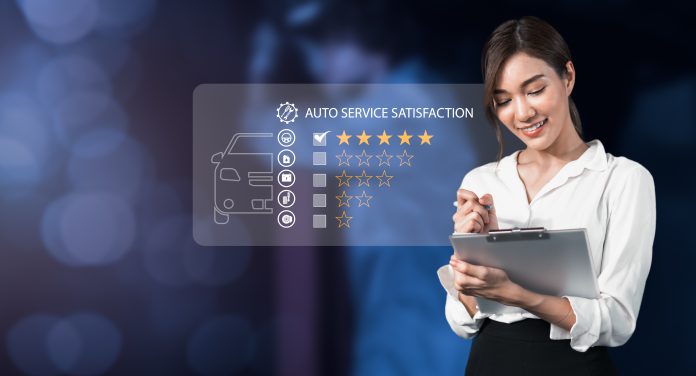Is sealing the deal and making that sale the endgame? Think again. Today, the real battle for customer loyalty starts after the car leaves your lot. You may have a satisfied customer driving away in their new vehicle, only to face their first service appointment with dread. It’s not just about servicing cars; it’s about building trust, fostering relationships, and ensuring every interaction keeps them returning.
According to Zhecho Dobrev, a principal consultant at Beyond Philosophy and the author of the recently published book The Big Miss: How Organizations Overlook the Value of Emotions, “Emotional connection creates preference over the competition. Customers don’t just come back out of convenience. They see a difference between doing business with your company and other companies.”
His research highlights that a company’s business success hinges on customer relationships. The relationship you want with customers is rooted in emotion. A good experience creates a positive memory and strong emotions. Your customers don’t choose between experiences—they choose between the memories of their experiences.
The relationship established at the post-sale service can be the deciding factor between a one-time buyer and a lifelong customer. And the competition for post-sale service from independent shops to OEM-brand competitors, is fierce. Your service team plays a pivotal role in building the emotional foundation of a lifelong customer by transforming routine maintenance into memorable customer experiences.
So, how can dealerships empower their service teams to drive customer satisfaction and retention? Let’s review strategies to turn your service department into a loyalty and repeat business powerhouse.
The Importance of Post-Sale Service in the Automotive Industry
Post-sale service isn’t merely a courtesy; it’s a cornerstone of customer loyalty. Studies consistently show that customers who feel they received excellent service after purchasing a vehicle are likelier to return for future purchases and recommend the dealership to others. In fact, statistics reveal that 38 percent of customers prioritize service quality when choosing where to buy their next vehicle.
Building a Proactive Service Culture: Best Practices and Strategies
Dealerships must cultivate a proactive service culture among their teams to deliver exceptional post-sale service. This starts with comprehensive training programs emphasizing customer-centric values and practical communication skills. Motivating service staff to prioritize customer needs ensures that every interaction leaves a positive impression.
Utilizing Technology for Efficient Service Management: Role of CRM Systems
You’ve heard it repeatedly and may be sick of it, but yes, CRM systems and data analytics tools are invaluable assets for managing customer relationships post-sale. CRM systems may seem pricey depending on your dealership size, but choosing these technologies enables service teams to anticipate customer needs, personalize interactions, and streamline service operations. By leveraging data insights, dealerships can offer timely maintenance reminders, proactive repairs, and tailored service plans that enhance customer satisfaction.
Creating Personalized Service Plans
One-size-fits-all approaches won’t cut it in your market. Dealerships that tailor service plans and maintenance schedules to individual customer preferences and data foster a deeper connection and loyalty. For instance, a high-performance sports sedan owner will need different services than someone driving a family SUV. Recognizing these distinctions and personalizing service plans accordingly can significantly enhance customer satisfaction.
Using customer data, dealerships can develop maintenance schedules and service offerings tailored to the specific needs of each vehicle type and owner profile. High-performance vehicles require more frequent tune-ups and specialized care, while SUVs benefit from different maintenance intervals and services focused on family safety and reliability. This knowledge is more than data and will require time to get to know your customers.
Studies show that 47% of today’s customers feel less valued when they face difficulty reaching or talking to unsupportive customer service agents. With other companies reducing costs by cutting back on customer service time, becoming more personalized can significantly boost customer retention and satisfaction scores.
By addressing each customer’s unique needs, dealerships can ensure that their service offerings are relevant, timely, and valued, fostering deeper loyalty and encouraging repeat business.
Enhancing Communication and Follow-Up: Strategies for Ongoing Engagement
Clear and consistent communication is vital to maintaining strong customer relationships post-sale. Service teams should implement structured follow-up procedures, such as scheduled check-ins and service reminders, to keep customers informed and engaged. These efforts address immediate concerns and demonstrate ongoing support and commitment.
And, as Intellichek points out, “service shouldn’t just focus on the vehicle’s lifespan; it should extend to the customer’sjourney with you. By consistently delivering exceptional service experiences, you earn the opportunity to discuss their future needs and showcase your latest offerings.”
Training and Development for Service Teams: Continuous Improvement
By now, you should know that continuous learning is essential. Dealerships who invest in sales training see a 17% increase in the sales conversion rate compared to those who don’t. Dealerships should also invest in regular training programs that keep service teams abreast of the latest automotive trends, technologies, and service techniques. Empowered with knowledge, service personnel can deliver superior service experiences that exceed customer expectations.
Leveraging Customer Loyalty Programs
Effective loyalty programs incentivize repeat business and referrals, driving dealership profitability. By rewarding loyal customers with exclusive perks, discounts, or service incentives, dealerships can cultivate a community of brand advocates who actively promote their services. Successful loyalty initiatives boost retention rates and strengthen the dealership’s competitive edge.
Key Strategies for Dealerships to Foster Long-Term Customer Loyalty
The journey from sale to service represents a critical opportunity for dealerships to differentiate themselves and secure long-term success.
By prioritizing post-sale service excellence, investing in technology and training, and embracing personalized customer care, dealerships can forge enduring relationships that drive profitability and growth.
Remember, our emotional connection with customers is the key to their loyalty and retention. Let’s empower service teams to deliver exceptional experiences and set new standards for customer satisfaction in the automotive industry.



